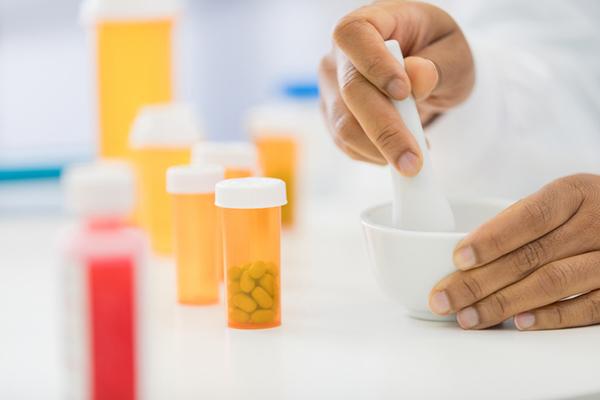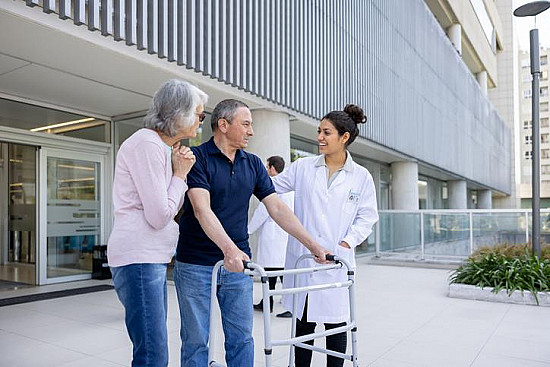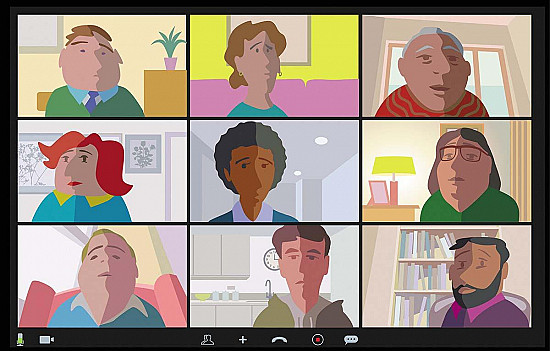Thinking of using a compounding pharmacy? What you need to know
- Reviewed by Robert H. Shmerling, MD, Senior Faculty Editor, Harvard Health Publishing; Editorial Advisory Board Member, Harvard Health Publishing

Compounding pharmacies have been in the news a lot lately, thanks to reports of some of them marketing and selling in-demand weight loss drugs such as semaglutide (Wegovy). But while there are some situations in which you may need to turn to a compounding pharmacy, you should do some careful research before you use one, advises Dr. Robert Shmerling, Senior Faculty Editor at Harvard Health Publishing. Here's what you need to know.
What is a compounding pharmacy?
The definition of a compounding pharmacy is broad. "Any pharmacy that provides medications that are not commercially available and prepares them onsite to meet your specific needs is a compounding pharmacy," explains Dr. Shmerling. It's estimated that compounded medicines represent up to 3% of all pharmaceutical prescriptions.
According to the American Pharmacists Association, there are about 56,000 community-based or retail pharmacies in the United States. Of these, about 7,500 are compounding pharmacies.
When might you need a compounding pharmacy?
There are a few different reasons why someone may need a compounding pharmacy. Some of the most common include:
- an individual requires a certain strength or dosage that is not commercially available
- an individual requires a different form of the medication (for example, a person who cannot swallow a pill may require a pharmacy to provide the drug as a liquid)
- the need to remove allergens such as lactose or gluten
- to produce a flavored medication for a child.
Another time you may require a compounding pharmacy is when there are drug shortages, notes Dr. Shmerling. Recently, for example, shortages of popular weight loss drugs such as tirzepatide (Zepbound) and semaglutide led people to compounding pharmacies. Compounding pharmacies can get access to chemical compounds directly from the drug manufacturer and mix the medication themselves.
What are the risks of using a compounding pharmacy?
While compounded drugs are always supposed to contain FDA-approved ingredients, the formulations as prepared at compounding pharmacies aren't reviewed by the FDA for purity, safety, or effectiveness. As a result, there's a chance that you may not be getting the drug that you think you are, stresses Dr. Shmerling.
In 2023, for example, the FDA received reports that some compounders were using salt forms of the diabetes and weight loss drug semaglutide, such as semaglutide sodium and semaglutide acetate. But these ingredients aren't FDA-approved, and there's no evidence that they are safe or effective.
Dosing can also be less reliable with compounded drugs. FDA-approved injectable semaglutide products, for example, are only available in pre-filled pens, so it's harder for health care providers or patients themselves to make mistakes. But compounding pharmacies may load the pens with medication themselves, or expect patients to do so. The FDA has received reports of health providers calculating an incorrect dose, or patients giving themselves an incorrect dose. This can lead to potentially serious side effects like nausea, vomiting, headache, or acute pancreatitis. Some people have even needed to be hospitalized.
"The compounding pharmacy may not give patients adequate instruction. There are reports of patients mistakenly giving themselves 20 times the appropriate dose," says Dr. Shmerling.
Since compounding pharmacies themselves aren't FDA-regulated, there's also a greater risk of drug contamination. That's what happened in 2012, when patients developed fungal meningitis after receiving contaminated spinal injections of a compounded product. Almost 800 people got sick, and 64 died.
For all of these reasons, says Dr. Shmerling, it's best to use a compounding pharmacy only when truly necessary — that is, when you need a medication that is not commercially available through a regular pharmacy.
Is it possible to know if compounded drugs are safe and potent?
Not always. "There's a lot of buyer beware when it comes to compounded pharmacies," says Dr. Shmerling. Unlike the drugs you purchase at a local pharmacy, compounded drugs aren't FDA-approved. This means there's no easy way to know for sure how safe and effective they are.
You do, however, have some protection. All compounded pharmacies must be licensed and regulated by their state's pharmacy board. And the Drug Enforcement Administration (DEA) oversees any controlled substances, such as hydrocodone and amphetamines, that are put into compounded drugs.
Compounding pharmacies must also follow rules set out by US Pharmacopeia (USP). This is an independent nonprofit organization that works with the FDA to set quality standards for medicines.
Identifying a legitimate compounding pharmacy
It can be tricky to identify a legitimate compounding pharmacy, says Dr. Shmerling. Your doctor may already use a compounding pharmacy with other patients and may be able to refer you to one they know is reliable. But other times, they may not know.
You can find compounding pharmacies near you on the Alliance for Pharmacy Compounding website. When evaluating a compounding pharmacy, here are some questions to ask:
- Are you licensed to dispense or ship to my state?
- What training do your pharmacists have? (Ideally, you want a pharmacy where the pharmacists are board-certified sterile compounding pharmacists, or BCSCPs.)
- Does a third-party lab test your compounded medications?
- What other accreditation does your pharmacy have? (Ideally, your pharmacy will be accredited by the Pharmacy Compounding Accreditation Board (PCAB), which is considered the gold standard for compounding pharmacies.)
You should also be wary of buying compounded drugs online, whether it's through an online pharmacy or a telehealth platform. This has become a particularly popular option for weight loss drugs. According to the FDA, when buying drugs online, you may not know whether the drug was produced by a compounder whose drugs meet appropriate quality standards, or whether the compounder is appropriately licensced and regulated.
About the Author

Hallie Levine, Health Writer
About the Reviewer

Robert H. Shmerling, MD, Senior Faculty Editor, Harvard Health Publishing; Editorial Advisory Board Member, Harvard Health Publishing
Disclaimer:
As a service to our readers, Harvard Health Publishing provides access to our library of archived content. Please note the date of last review or update on all articles.
No content on this site, regardless of date, should ever be used as a substitute for direct medical advice from your doctor or other qualified clinician.















